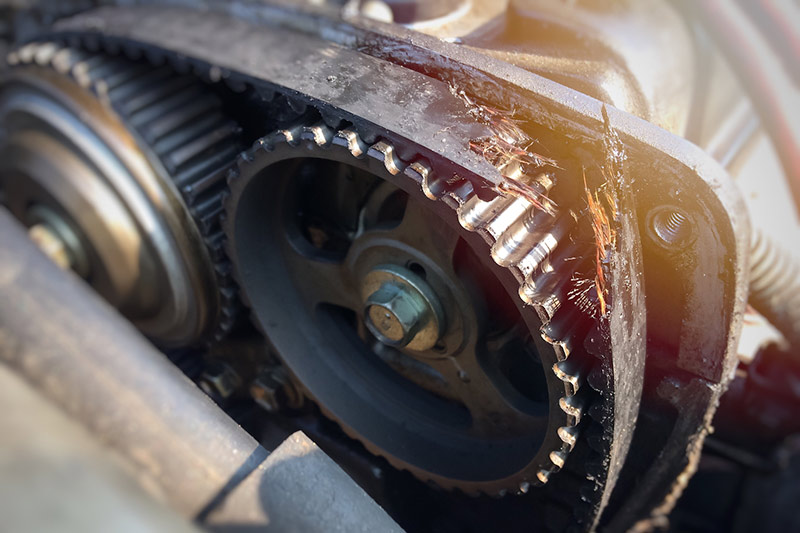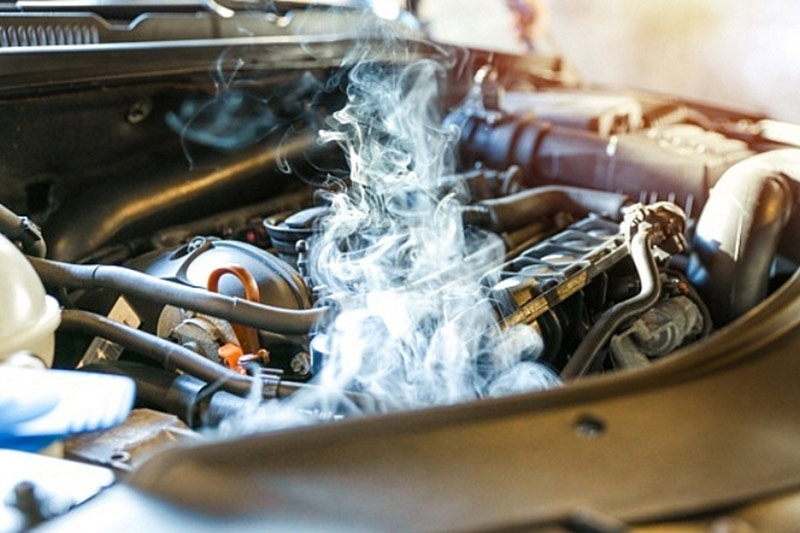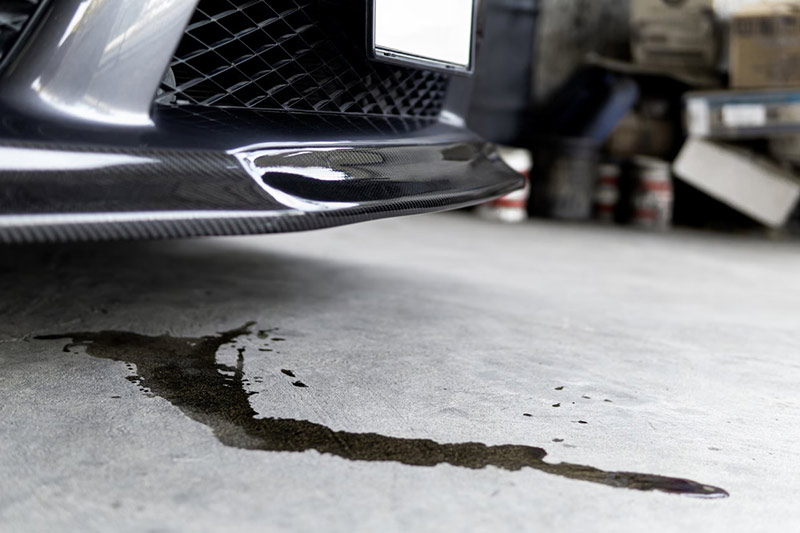Vehicle Engine Replacement - Hamilton
Engine Replacement for all light vehicles in Hamilton.
Engine replacement costs vary depending on vehicle type, required engine and hours of labour needed.
All you need to know about swapping an engine at Affordable Auto Services!
Replacing a Car Engine: An overview
Swapping an engine is not as simple as pulling out the old engine and slotting in a new one.
Replacing a car engine is a major undertaking, involving several steps and considerations. Here's a breakdown:
Diagnosis and Decision
- Diagnosis: Our mechanics will pinpoint the engine issue and determine if replacement is necessary or if repairs are possible.
- Decision: You'll decide based on cost, car value, and desired future use. Replacing an engine can be expensive but extends a car's life, while buying a new car might be more viable depending on circumstances.
Our diagnostic process may pick up a number of other parts that need to be changed over or at the very least repaired, so you don’t face further issues after your car leaves our garage with a new engine under the hood.
Our mechanics also investigate:
- Power steering
- Transmission
- Engine cooling system
- Cabin air conditioner
- Charging and starting systems
- Sensors and relays
Engine Removal and Installation
- Removal: Our mechanics disconnect and remove your old engine using specialized tools and expertise.
- Installation: The new engine is mounted, connected to various systems (fuel, cooling, exhaust, etc.), and all components are checked and adjusted.
Additional Checks and Adjustments
- Fluid changes: Oil, coolant, and other fluids are replaced.
- Diagnostics: Engine performance is thoroughly assessed to ensure proper operation.
- Computer re-learning: Some cars require the computer to "re-learn" the new engine, involving specific driving procedures.
Costs and time frame
There are a wide range of factors that will affect the cost of your engine replacement. We recommend bringing your car in for a throughout diagnosis and we will provide you with a quote.
- Costs: Vary depending on engine type, labour, and additional parts needed.
- Timeframe: Engine repalcement typically takes a couple of days, sometimes up to a week.
Additional notes on swapping engines
- Warranty: Understand the warranty terms associated with the chosen engine and the repair work.
- Disposal: Ask about proper disposal of the old engine, as it involves hazardous materials.
Please note, this is just a general overview. Specific details will vary depending on your car and chosen engine. For accurate information and guidance, contact us to assess your individual situation.
What does a typical car engine replacement include?
Besides the engine itself, several other parts are typically replaced during an engine replacement procedure. Here's a rundown of common replacements:
Essential Replacements:
- Gaskets and Seals: Replacing old, worn-out gaskets and seals throughout the engine is crucial to prevent leaks and ensure proper operation. This includes head gaskets, valve cover gaskets, intake and exhaust manifold gaskets, oil pan gasket, etc.
- Filters: New oil filter, air filter, and fuel filter are installed to ensure clean fluids reach the new engine.
- Fluids: Engine oil, coolant, and transmission fluid are drained and replaced with fresh fluids.
- Mounts and Bushings: Engine mounts and transmission mounts absorb vibrations and ensure proper alignment. Worn mounts can contribute to poor engine performance and are often replaced during the process.
- Belts and Hoses: Timing belts, serpentine belts, and radiator hoses deteriorate over time and are replaced for preventative maintenance.
Possible Replacements:
- Water Pump: The water pump circulates coolant, and if it's nearing the end of its lifespan or shows signs of wear, it might be replaced with the engine.
- Thermostat: The thermostat regulates engine temperature. If faulty, it could be replaced.
- Spark Plugs and Ignition System Components: Depending on the engine type and mileage, spark plugs, wires, or coils might be replaced.
- Sensors: Specific sensors related to engine performance might be replaced if deemed necessary.
- Clutch or Flywheel: In manual transmission vehicles, the clutch or flywheel might be replaced if worn or damaged.
- Engine Accessories: Depending on the specific engine and replacement process, some accessories like the alternator or starter motor might be removed and replaced.
Notes:
- This list is not exhaustive, and the specific parts replaced will vary depending on your car, the condition of existing components, and our mechanic's recommendations.
- Always discuss the planned replacements and their costs with our mechanics beforehand to avoid surprises.
It's important that we assess your specific situation and give you a detailed breakdown of what parts need replacing during your engine replacement process.
Upgrading to a larger CC Engine
If the replacement engine being installed has a larger capacity producing more power, you will need vehicle mofication certification in order to pass a WOF inspection and be road legal. LVV Inspection/Certification costs are usually at least $500, so keep this added expense in mind if planning to upgrade your engine.
How do I know if my engine needs replacing?
Engines with severe damage (cracked engine block, seized/damaged crankshaft), may require replacement.
Snapped cambelts, overheating or oil leaks can seriously damage an engine. Swapping in a replacement engine can be cheaper than fixing individual components.
10 warning signs your engine needs checking
- Dashboard Engine light is on
A blinking light, or a red light instead of a yellow or orange light, indicates a problem that needs to checked out as soon as possible.
- Engine Overheating
Constantly overheating engines are often signs of an unrepairable cracked engine block. Each time your engine overheats, it does more damage to the head and rods.
- Excessive exhaust smoke
This indicates that oil, coolant, or gasoline are leaking into the engine.
- Excessive oil consumption
Using large amounts of oil between oil changes can indicate internal engine problems, such as worn valve seals or piston rings
- Metal Shavings in the Oil
Any metal in oil is coming from parts of your engine that are disintegrating. They can't be fixed because they're crumbling. As oil flows through your engine, keeping the parts lubricated, the liquid picks up these shavings and can cause even more damage to the system.
- Unusual smells from your engine bay
Burning smells or an oil-like odor, can signify serious engine problems
- Loss of power / Decreased fuel efficiency
Significant loss of power, decreased acceleration, or decline in engine performance despite proper maintenance, can indicate internal engine wear or damage.
- Unusual Engine Noises eg: knocking, backfiring, hissing or spitting
Loud knocking noises can be the pistons hitting the cylinder block, meaning damage has occurred inside your engine. If you don't deal with this issue, eventually it will kill your engine.
- Engine stalling
When your car stops and the engine cuts off, it can be a sign that your engine has reached the end of its lifespan. Repairs can't be made and you’ll need to replace the whole engine.
- Engine continues to run after it's turned off
Running-on occurs when the fuel/air mixture in the cylinders ignites without a spark.
This could mean the wrong grade of petrol is being used (usually of too low octane), the spark plugs are faulty or of the wrong grade, the carburettor is badly out of tune, or the ignition timing is faulty.
However, a carbon build up can lead to major engine damage and this issue should be checked ASAP.
Please note these signs do not mean your car engine has to be replaced.
Faulty parts or sensors could be the cause of some of these issues and it’s important to get engine issues accurately diagnosed by one of our experienced mechanics.
In each case, a diagnosis is recommended to check if a repairs or a replacement engine may be necessary.
Got Engine Issues?
For an engine diagnostic or engine replacement quote, contact us today.
Book your vehicle in.



